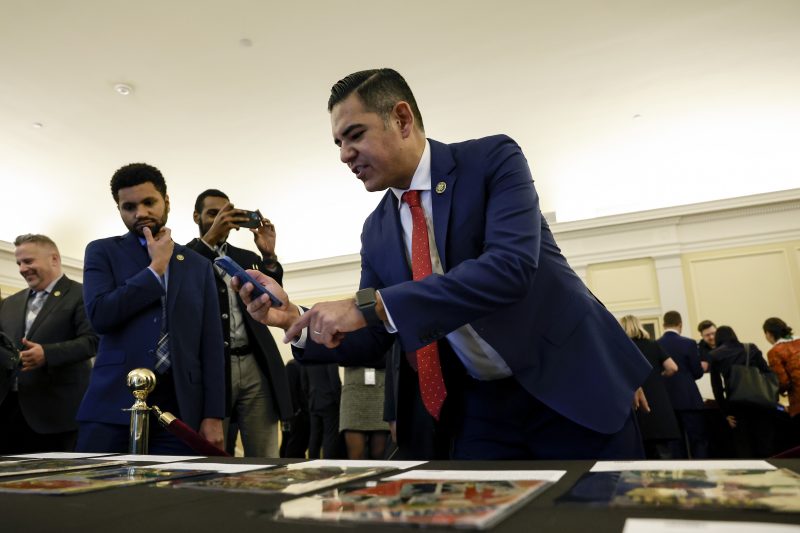
The Grammys omitted Spanish captions. A congressman wants improvements.
When Bad Bunny opened the Grammys on Sunday with a mash-up of his songs, fans and other singers stood and danced at the Crypto.com Arena in Los Angeles.
But at many homes worldwide, viewers didn’t understand what the Puerto Rican artist was singing. While Bad Bunny performed in Spanish, CBS displayed captions stating he was speaking and singing in “NON-ENGLISH.”
Spanish speakers across social media knocked the program’s absence of Spanish-language closed captioning, and Rep. Robert Garcia (D-Calif.) joined the uproar Wednesday, criticizing CBS and its chief executive, George Cheeks, in a public letter.
“For too many Spanish-Speaking Americans, it felt disrespectful of our place in our shared society, and of our contributions to our shared culture,” wrote Garcia, who immigrated from Peru to California as a child. “For the hearing impaired community, this failure was hurtful.”
Bad Bunny, whose real name is Benito Antonio Martínez Ocasio, began Sunday’s show by singing a mash-up of “El Apagón” and “Después de la Playa” — a performance that sent even Taylor Swift to the dance floor. Later on, Bad Bunny’s album “Un Verano Sin Ti,” which was the first all-Spanish album to finish atop Billboard’s yearly chart, won the Grammy for best Latin urban album.
“Gracias,” Bad Bunny said as he began his acceptance speech. “This is easy because I just made this album with love and passion.” Moments later, he recited the remainder of his 66-second speech mainly in Spanish. The subtitles only stated he wasn’t speaking English.
A CBS spokesperson didn’t respond to a request for comment Thursday night. The channel displayed captions for Bad Bunny’s appearances on replays and on the streaming service Paramount+, which Garcia said he appreciated.
“I am gratified by your efforts to address concerns, including adding closed captioning to replays of the performance,” Garcia wrote in his letter, “but I urge you to take serious measures to address the failures which made this mistake possible.”
According to 2019 data from the American Community Survey, Spanish is the second-most spoken language in the United States, with nearly 42 million speakers. In recent years, Latin music’s popularity has spiked in the United States and elsewhere. Bad Bunny was the most streamed global artist on Spotify the past three years, and “Un Verano Sin Ti” was the first all-Spanish album to be nominated for the album of the year Grammy.
“CBS owes it to their multilingual audience to do better,” Garcia, 45, said in a statement to The Washington Post. “As a proud Latino immigrant, I am committed to ensuring that the millions of Spanish speakers in our country, and Bad Bunny, are treated with the respect they deserve.”
Spotify played off CBS’s captioning kerfuffle by creating a playlist titled “[speaking non-english]” that includes songs by Bad Bunny and Swift. Netflix’s Spanish Twitter account also joked about the captions, posting a video that describes Spanish-language movie and TV scenes with “non-English” subtitles.
The Grammys’ lack of Spanish captions followed another captioning failure the prior night. Chilean-born actor Pedro Pascal delivered a punchline on “Saturday Night Live” in Spanish that wasn’t immediately translated.
Garcia wrote in his letter to CBS that hiring diverse leaders could improve the accessibility issues.
“Proper representation for historically underserved communities in senior roles is critical both for my community, and for your efforts to serve the American people,” Garcia stated. “I welcome the opportunity to engage further with you on this critical issue, and hope to work together to ensure that all voices can be heard, honored and respected.”
